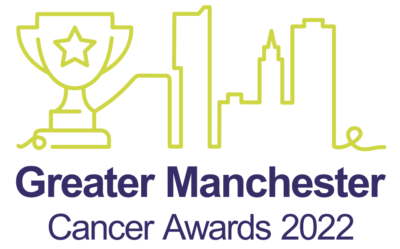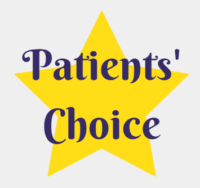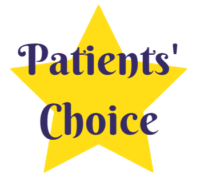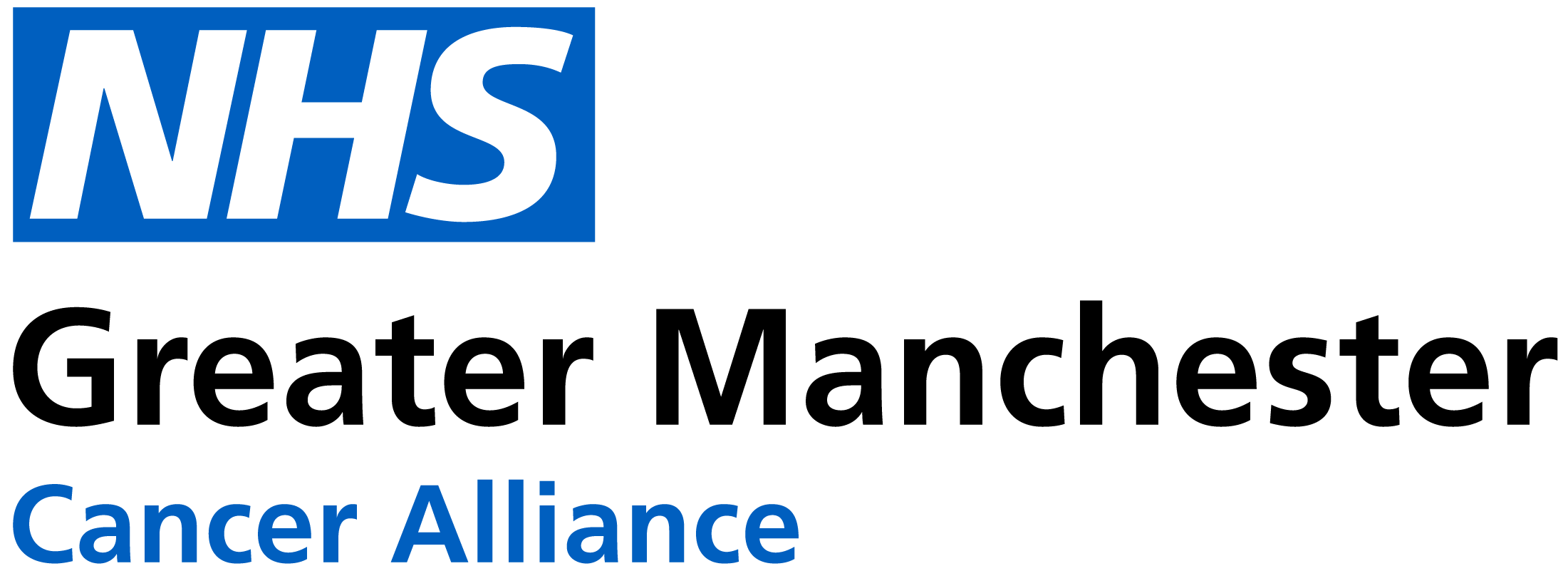Greater Manchester Cancer Awards 2022 – Finalists and Winners
We are delighted to announce the winners of the first Greater Manchester Cancer Awards.
The awards are designed to honour outstanding work to improve lives and treatment for people with cancer in Greater Manchester, and we have had some extremely high quality entries. A panel of judges – including patient representatives and staff working in cancer from across the city – whittled down around 50 entries to a final shortlist.
“ I found reading the entries heartwarming and comforting in that so many healthcare staff are deeply passionate to improving cancer care in Greater Manchester. As a patient you are not always aware of what’s going on behind the scenes to improve and advance cancer care, these entries revealed that patients and their family carers are at the heart of GM cancer care services”
Dr Julie Wray, Patient and Judge.
Winners were announced on Tuesday 18th October 2022 at a special invitation-only awards ceremony.


Patients’ Choice Award
The Patients’ Choice award was voted for by the Greater Manchester Cancer Alliance User Involvement representatives, who were able to vote for any of the 18 finalists. We were delighted that the result was a tie, look for the “Patients’ Choice” star below to see who won!
Outstanding Care Award
Targeted Lung Health Checks Programme
Manchester University NHS Foundation Trust, Manchester and Tameside Localities

In 2016 the MFT respiratory team designed and delivered a ‘Lung Health Check’ (LHC) pilot in conjunction with Macmillan and heavy involvement from primary care colleagues to deliver lung cancer screening for our population. This was primarily based in deprived communities of Manchester, targeting those most at risk of lung cancer. This pilot was expanded to a fully commissioned service in North Manchester in 2019, and further expanded to the Tameside & Glossop NHS England phase 1 project, currently underway. Ever-smokers, aged 55-74, are invited to have a LHC on mobile units in community locations. The LHC comprises a ‘One-Stop Shop’ assessment of symptoms, spirometry* and cardiovascular risk using validated tools. Current smokers are provided with smoking cessation/tobacco addiction interventions. Attendees at higher risk of lung cancer immediately have a low-dose CT* scan. Invitation to participate in research also takes place from the MOPED research teams, co-located on the units.

Teaching Patients and Carers to Inject Chemotherapeutic Drugs at Home
Northern Care Alliance
The Adult Clinical Haematology Department at Pennine Acute NHS Trust provide high quality services to around 800,000 residents across the northeast of Greater Manchester. Bortezomib, a proteasome inhibitor, is recommended as treatment for both induction chemotherapy and treatment of relapse disease, for 6 to 8 cycles. Patients (mostly elderly) must come to the extremely busy day unit 32 times to have the Bortezomib injection administered and more visits for review of their condition by the medical team in-between. The Haematology team have initiated a service whereby patients are taught to inject the drug in the comfort of their own house. This has had a significant positive impact on patient’s quality of life in avoiding unnecessary hospital commute and exposure during the pandemic as evidenced by the patient experience survey, but has also created additional capacity on the day unit and financial profits based on cost per episode.
The judges said….. This project worked creatively with existing resources, and showed clear evidence of improving patient experience by reducing patient visits / time spent at hospital. It reached out to the target population to ensure that the change was patient led, and has huge potential to be rolled out more widely and influence other “care at home” offers.
One Stop Lung Cancer Clinic Team
Greater Manchester Cancer Alliance / Manchester University NHS Foundation Trust / The Christie NHS Foundation Trust


The One Stop Lung Cancer Clinic is a new initiative, launched in June 2022, at Wythenshawe Hospital. The clinic is for patients diagnosed with lung cancer suitable for curative intent treatment with either surgery or radiotherapy, but when it is not clear what the best option is. Prior to the launch of the clinic, the patient pathway would consist of multiple appointments across different Hospital Trusts to reach a decision, which can adversely affect outcomes through pathway delays and poor patient experience. The clinic provides a multi-disciplinary approach to shared decision making and the opportunity for patients to meet with different treatment specialists including oncologists, surgeons, physicians, oncogeriatrician and cancer nurse specialist to make the treatment decision that is best for them, on the day of clinic where possible.
Commitment to Equality Award
The ACES LGBTQIA+ Project
The University of Manchester
The Alternative Cervical Screening (ACES) team in Manchester is investigating the possibility of a urine test as an alternative to routine cervical screening. This work aims to increase screening coverage especially in communities at risk of cervical cancer but with lower rates of screening attendance, such as the LGBTQIA+ community.
Alongside members of the LGBTQIA+ community, we co-designed an online survey to explore the acceptability of self-sampling methods including urine for cervical screening. We worked closely with community members and cervical screening/LGBTQIA+ stakeholders to distribute the survey, with 503 responses, including 219 from individuals who identify as transgender.
The survey explored barriers to accessing screening and views on self-sampling options for future screening. This is the first exclusive LGBTQIA+ study in cancer prevention and early detection in Manchester and is the foundation for a pipeline of work to ensure inclusive and relevant future research for a community that is currently underserved and experiencing unique barriers to healthcare.
Learning Disability Flagging Project
Pennine Bowel Screening Programme

The NHS Bowel Cancer Screening Programme recruited Cancer Screening Improvement Leads to increase uptake of the programme and access to the programme for identified groups. In 2019 the programme changed the testing process which meant that it was easier to complete, and uptake has risen by 7% in the eligible population. Within this figure however there are groups who do not take part and it is the CSILs role to identify these groups and put in place projects to ensure that the programme is adapted to address these heath inequalities. The CSIL’s have worked with adults with a learning disability, SMI and prison settings to develop a more equitable pathway. This has resulted in working across other health teams, the regional hub and the clinical teams within the programme. The work has meant the uptake in these groups has increased by training staff and working with participants to raise awareness.

Encouraging Inclusivity in Technology Clinical Trials Project
digital Experimental Cancer Medicine Team, (dECMT) Cancer Research UK Manchester Institute, The Christie NHS Foundation Trust
The digital Experimental Cancer Medicine Team (dECMT) conducts technology clinical trials to develop new technologically-enabled healthcare pathways through patient empowerment. However not all patients can utilise modified care pathways involving technology due to inequitable access (sometimes termed the digital divide). The aim of this project was to develop inclusivity guidance for future development of technology clinical trials. For this project, the dECMT partnered with Vocal, a not-for-profit organisation which creates opportunities for people to learn about and have a voice in health research in Greater Manchester. Three half-day online workshops were attended by representatives from Vocal and dECMT, academic researchers in digital health inequities, The Christie Hospital Chair of the Ethnic Diversity Group, and most importantly five patients and two patient representatives. The outputs from this project include inclusivity principles to guide all current and future work, and an interactive checklist for use throughout the research process.
The judges said… The project showed careful co-production and collaboration and included clear outputs from their work on this digital divide: ‘The outputs from this project include inclusivity principles (5 key principles) to guide all current and future work, and an interactive checklist for use throughout the research process (to be completed by the team behind each piece of research’. There is a plan to share widely and internationally!
Greater Manchester Collaboration

Prehab4Cancer
GM Cancer and GM Active
Prehab4Cancer (P4C) is the first UK Integrated Care System (ICS) delivered prehabilitation and recovery programme for cancer patients, via a partnership between Greater Manchester Cancer alliance and GM Active, the collective of 12 leisure and community organisations in Greater Manchester. The programme facilitates cancer patients to engage in exercise, nutrition, and wellbeing assessments and interventions prior to, during and after treatment. Since inception in 2019 P4C has supported over 3,000 people in preparing for the physiological challenges of cancer treatments. P4C has shown improvements in physiological function, nutritional status and mental wellbeing, resulting in shortened recovery time, reduced peri-operative complications and better survival. Patients are empowered to take an active role in their cancer care, with an improved experience of their cancer pathway. The programme is currently available for people diagnosed with colorectal, lung or oesophago-gastric cancers, who are offered specific treatment pathways.
Primary Care Network Collaboration in Greater Manchester
GM Cancer Alliance and GM Primary Care Networks

Cancer Alliances have been asked to work with Primary Care Networks in their area to support delivery of the service requirements in the national ‘Directed Enhanced Service’ for Early Cancer Diagnosis. The Cancer Alliance through the Early Diagnosis team have developed strong working relationships with colleagues in the 10 GM localities and in Primary Care, including via the GM Primary Care Board and Primary Care Cell. In 2021-22 we established the Primary Care Network Cancer Lead roles. All 66 PCNs have a named Cancer Lead who work with us to:
- Identify ways in which the early identification of cancer can be improved and projects required to support this
- Encourage reflective practice and identify areas where the Cancer Alliance can provide support
- Focus on celebrating and sharing good practice
- Design and deliver targeted education and support where it is needed
- Develop a ‘community of practice’ for early diagnosis of cancer
Our judges said… This is a clear winner because it has GM wide impact, clear evidence of benefit to the patient and reducing inequalities by working across all the recently introduced PCNs and works across all cancer types.

National Cancer Clinical Nurse Specialist Day
CNS Workforce Subgroup (Greater Manchester Cancer Alliance)
The growth of the cancer workforce isn’t keeping pace with the rising demand for cancer services, and the role of the Clinical Nurse Specialist (CNS) is no exception to this. In order to bridge the gap between patient care and our workforce, we need 100% more CNSs in the cancer system by 2030. To address this workforce need (highlighted as a priority area in the NHS Planning Guidance) the GM Cancer CNS Workforce Subgroup set out to raise the profile of the CNS via videos in a social media campaign to myth-bust preconceptions around working in a cancer setting and showcase the role. Given the wider national implications, other cancer alliances and organisations were approached to float the idea of a National Cancer CNS day (15 March 2022). Our local idea snowballed to national collaboration with support and input from Health Education England (HEE), Royal College of Nursing, UKONS, Macmillan Cancer Support and all 21 cancer alliances getting involved with activities in some capacity.
Research Award
Genito-urinary Cancer Research Group
University of Manchester, The Christie & Salford Royal Hospitals
The Genito-Urinary Cancer Research (GUCR) group, led by Professor Noel Clarke, has transformed the management of men diagnosed with advanced and metastatic prostate cancer. Our projects span laboratory research to improve our understanding of metabolic changes associated with cancer spread to the bone, leading practice-changing imaging research as part of the STAMPEDE trial (the world’s largest prostate cancer trial, with more than 13,000 patients), and studying real world data as part of the National Prostate Cancer Audit (more than 40,000 patients/year) to evaluate variation in practice and identify areas of improvement in prostate cancer management at a national level. The GUCR group has also played a pivotal role in training research-active clinicians across Greater Manchester, including 9 completed PhDs, 15 completed MDs, and 3 ongoing higher research degrees. This has led to lasting improvements in clinical care across the region by supporting the use of evidence-based approaches in the management of patients with genito-urinary cancers.
Remote monitoring of cancer patients at high risk of sepsis for earlier intervention and better outcomes; the RECAP study
The Christie NHS Foundation Trust and The University of Manchester
Patients with cancer receiving chemotherapy are at risk of sepsis. This disrupts treatment and is sometimes fatal. Current management depends on patients contacting the Cancer Centre if they develop symptoms such as fever. However, these may not be recognised, or, for a variety of reasons, patients may be reluctant to seek advice in a timely way. As a consequence, patients with sepsis often present late and this adversely affects outcome. In a world first study (RECAP), we have shown it is possible using wearable biosensors to harvest physiological data from patients at home and transmit these in real time to the Cancer Centre using regular 4G cellular networks. Crucially, we identified changes in heart and respiratory rates that preceded clinical deterioration by up to 36 hours, findings that could be used to identify patients requiring urgent assessment/intervention. Patients were strongly supportive of using digital technology to improve care.
Testing womb cancer for Lynch syndrome: How Manchester-led research changed UK clinical practice
The University of Manchester and Manchester University NHS Foundation Trust

We identified significant knowledge gaps, a paucity of clinical guidelines and inconsistent delivery of gynaecological care to women with Lynch syndrome in the UK. To address these gaps, we conducted the first study of unselected population testing of womb cancer for Lynch syndrome. Through unselected and comprehensive testing all womb cancer patients attending Manchester University NHS Foundation Trust between 2016-18, we showed that 3% have Lynch syndrome and defined the best strategy for identifying them, using immunohistochemistry for mismatch repair (MMR) deficiency (Ryan et al PLoS Medicine 2020). We found that women want to be tested for Lynch syndrome and a universal testing strategy is cost effective for the NHS. We alerted NICE, who commissioned an expert advisory group to assess the evidence, which culminated in guidance that recommends testing all womb cancer patients for Lynch syndrome. This guideline has changed clinical practice across the UK
Our judges said… For clearly demonstrating the benefits to women of testing for Lynch Syndrome within womb cancer patients, for engaging with and co-developing the project with patients, and for ensuring the voice of women with womb cancer was heard throughout the project.
Educational Impact Award

Making Smoking History in Greater Manchester
Greater Manchester Integrated Care Partnership
Tobacco is the number one cause of preventable illness and premature deaths, killing around 80,000 people each year in England alone. Smoking damages every organ in the body and causes at least 15 different types of cancer, including 70% of all lung cancer cases. However, smoking is not a ‘lifestyle choice’. It’s a lifelong chronic addiction which often starts in childhood. Once somebody starts smoking, it’s very hard for them to stop.
Through Greater Manchester’s ‘Making Smoking History’ strategy there has been a significant drop in smoking rates (80,000 fewer smokers) and a shift in societal and cultural attitudes towards smoking. This is a result of several comprehensive and evidence-based programmes that have educated people about the harms of smoking, supported healthcare professionals to understand and treat tobacco addiction, created more smokefree environments, and driven thousands of people to stop smoking services.
The judges said…. For a very clear description of the issues smoking and tobacco causes in Greater Manchester, great consideration of communities and populations affected by health inequalities, and evidence of community engagement and how these inequalities have been addressed in working with pregnant women, people living in social housing, and LGBT+ communities.
Primary Care Fast Facts
GM Cancer Alliance and GatewayC
In the 2020 response to the Covid-19 pandemic the Cancer Alliance were asked to provide bite-sized information and education for primary care to support recovery of cancer referrals. The Alliance commissioned the GatewayC GM-Live programme – innovative and targeted educational materials for primary care professionals. The GatewayC GM-Live webinars, “fast facts videos” and infographics are tailored to the educational need of GPs across Greater Manchester (GM), designed by GM experts and pathway leads.
The webinars inform and empower primary care professionals, addressing nuances and difficulties of spotting cancer symptoms and making decisions about the most appropriate and effective referrals onto suspected cancer pathways. The 30-minute webinars and “fast facts” materials are adapted to the varied roles and schedules of primary care professionals. The materials are informed by GatewayC’s innovative behaviour-changing model of education focusing on collaborative learning, drivers of behaviour change, backed up with written, emailed and other memory jogging materials.
Cancer Awareness for Teens & Twenties – Youth Empowerment Workshops
Cancer Awareness for Teens & Twenties (CATT)

With 1 in 2 of people in the UK being diagnosed with cancer during their lifetime, it is vital we spread awareness and empower and encourage people to form healthy behaviours from a young age. Many young people are growing up unaware of the common signs and symptoms of cancer, risk factors that could increase their chance of being diagnosed with cancer, as well as screening programmes available to help prevent cancer developing. Our work helps to prevent cancers later in life, where possible, as well as supporting the earlier diagnosis of cancers in the UK. Cancer Awareness for Teens & Twenties, in partnership with the former NHS Salford CCG, delivered a one of a kind programme during 2020 and 2021 formed of the delivery of cancer awareness workshops to young people 11+ in schools, colleges, Pupil Health Referral Units, youth clubs and homeless shelters across Salford, Greater Manchester.
Innovation Award

MyChristie-MyHealth – The Christies ePROMs project
The Christie NHS Foundation Trust
The Christie Electronic Patient Reported Outcome Measures (ePROM) team is at the forefront of providing patient centred care. There is strong evidence from randomised trials demonstrating the benefits of ePROMs. However, the implementation of ePROM on a large scale and in the routine setting across all cancer pathways is a challenging task. The ePROMs team have set up a service aiming to revolutionise patient care at the Christie through personalised care models, early detection of symptoms and toxicity, and timely intervention. Since 2020 we have implemented ePROMs (symptom and quality of life questionnaire) in 10 disease groups, with over 19,000 ePROMs collected from over 6,659 patients to date. In addition to embedding ePROMs into the routine care of patients with cancer we are setting-up a personalised follow up system where ePROMs will determine follow-up frequency and type. We are also creating a responsive service whereby ePROMs alerts can be directed to and acted upon by the hotline team in a timely manner.
The judges said… Digital meets clinical – this project provided clear evidence of using innovative ways of working to benefit both patients and clinicians.
Bloods Closer to Home
The Christie NHS Foundation Trust

The Christie are committed to delivering care closer to home within the community. The nurse-led Christie SACT outreach and the Christie at Home service offer the delivery of cancer treatments closer to our patients’ home. The bloods closer to home service was a pilot to support patients receiving SACT closer to home. Due to the success of the pilot and with charity support the service has expanded and offers local phlebotomy services to support all Christie patients. Offering local phlebotomy services for patients living across Greater Manchester reduces travel time and cost to patients. Bloods closer to home has been a great innovative opportunity for SACT services to collaborate and improve patient care and experience. With 25 operational clinics throughout the week and patients can book their own phlebotomy appointments using a QR code link via a smart phone, on the Christie website or by contacting the team direct.
ELECTRIC Study
Manchester University NHS Foundation Trust (MFT)
Renal cell carcinoma (RCC) is increasing in incidence and frequently presents at an advanced stage which is associated with poor outcomes despite the introduction of costly targeted therapeutic agents. In hereditary RCC (HRCC), annual imaging is the current standard of care; however imaging is not always accessible and requires specialist radiological expertise. Therefore, there is a need to identify novel means of early RCC detection in HRCC. Tumour-educated platelets are showing promise as a sensitive and discriminatory means of early cancer detection. Colleagues in the USA have identified a platelet transcriptome signature (PTS) in individuals with early-stage sporadic RCC. The aim of the Early Detection of Hereditary Renal Cancer (ELECTRIC) Study is to investigate whether this PTS is present in individuals with early-stage HRCC. A distinct PTS present in early-stage HRCC will provide opportunities to refine and prospectively validate novel tumour biomarker profiles for early detection in a high-risk population.

